by Rabbi Jeffrey Adler
The book of Judges (Shoftim) is a remarkable demonstration that God wants His people to trust in Him instead of the conventional wisdom and stratagems of typical human reason. He delivers us in unconventional ways by unconventional people. None of the judges were the types of people who would have been our usual choices; Adonai chose peculiar people so that we would learn to trust in Him instead of our “heroes”. Examples would be: Ehud, the left-handed judge; Left-handedness was considered an anomaly. There was Shamgar, about whom all that was said is that he killed 600 Philistine soldiers with an ox-goad, ox-goads generally not being used as weapons; Samson, the eccentric strongman who, apparently, looked like anything but a powerlifter.
Another example, and the focus of this article, was D’vorah.
Israel had, again, apostacized and turned to idolatry, resulting in God’s protective hedge coming down and invasion and oppression by Canaanites ruled by King Yavin. It was the Bronze Age, but, the Canaanites under Yavin had mastered the development of iron. They had enough skill to be able to build a force of 900 iron chariots, implying they also produced iron swords, spears, shields, armor. The Israelis’ bronze weaponry was no match against the Canaanites’ iron, and, the iron chariots were like tanks. The Israelis were helpless against these “unstoppable” forces. They looked for a champion to lead them- a MacArthur or a Patton who could overcome the enemy.
God wanted Israel to trust in Him, consistent with the rest of Judges. He raised up, not a general, but, a remarkable woman named D’vorah. She was a wife, married to Lappidot, and a prophetess. Some have said Adonai chose her because there was no available man, but, there was- Barak. God chose her precisely because of her womanhood because He was making a point. The Spirit of God is the most ingenious storyteller. He describes D’vorah as judging Israel under her palm tree. The pastoral scene portrayed here is exactly the opposite of what Israel felt would describe the conqueror of Yavin, but, is appropriate for the instrument of the hand of God.
God tells D’vorah to summon Barak to lead 10,000 men Z’vulon and Naphtali against the Canaanites, who were led by their commander, Sis’ra. Barak asks D’vorah to go along, a request for which some have criticized him for hiding behind her skirts, a judgement that is blatantly unfair. D’vorah is a prophetess. Since Barak had the lives of 10,000 men in his hands against the ironclad invaders, he wanted the guidance of HaShem. D’vorah tells Barak that Sis’ra would fall into the hands of a woman- not a slam against Barak, but, a continuation of the general thrust of the narrative.
Once the decision was made to trust the Lord, the battle itself became a mere formality, dealt with in one verse. Sis’ra deserts his iron chariot and flees, hiding in the tent of a woman named Yael. He begs her to hide him. He becomes like a baby, to which she responds by giving him milk and a “blankie” and tucks him to sleep. She then drives a tent stake through his temple and disposes of the “unstoppable” force. His army was routed and Israel was free!
Adonai is the real source of our deliverance. Though we tend to look for that which is tangible to our senses, we need to realize what David says: “Some trust in horses, and some in princes, but, we will trust in the Lord our God.”
Rabbi Jeffrey Adler is president of the Board of HaShomer and also Rabbi of Sha’arey Yeshua in Indianapolis, IN.
